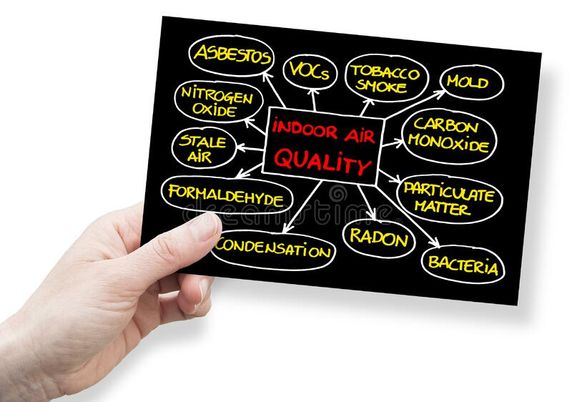
- Community
- Product
- Highlights
- Titans and Friends
- IAQ: Addon Profit for Today and Tomorrow
- Subscribe to RSS Feed
- Mark as New
- Mark as Read
- Bookmark
- Subscribe
- Printer Friendly Page
- Report Content
One of the easiest addons in today’s HVAC world is indoor air quality products. People sometimes forget even in this day and age how to protect their homes and businesses from impurities that can enter it. In talking with Michelle Hogan Vice President of Business Development for Dynamic Air Quality Solutions, who work with both residential and commercial contractors on indoor air quality she stated, “It is important for Dynamic to support contractors and provide the best possible air quality solutions in their communities. Our products provide the highest quality air and protect the machinery and appliances in their homes and businesses. We will also provide training so that the technician can inform the homeowner or business owner with knowledgeable information on the importance of IAQ. One last thing it helps employees produce a higher income for their families and greater profits for the company by helping clients improve their quality of life.”
Indoor air quality refers to the quality of the air inside a building, such as a home or office. Poor indoor air quality can lead to a range of health problems, including respiratory issues, allergies, and headaches. In this blog, we'll discuss the importance of indoor air quality and provide tips on how to improve it.
Why is indoor air quality important?
Indoor air quality is important because we spend a significant amount of time indoors. Poor indoor air quality can lead to health problems and discomfort, particularly for people who are sensitive to pollutants in the air. Common indoor air pollutants include dust, mold, pet dander, and volatile organic compounds (VOCs) from cleaning products and other household items.
How to improve indoor air quality
Use air purifiers: Air purifiers can remove pollutants from the air, improving indoor air quality. Look for air purifiers that have HEPA filters, which can trap particles as small as 0.3 microns.
Improve ventilation: Poor ventilation can lead to indoor air pollution. Open windows and doors when possible, to improve ventilation. Consider installing a whole-house ventilation system to bring fresh air into your home.
Clean regularly: Regular cleaning can help reduce indoor air pollutants, such as dust and pet dander. Vacuum carpets and rugs regularly and dust surfaces with a microfiber cloth.
Monitor humidity levels: High humidity levels can lead to mold growth, which can negatively impact indoor air quality. Use a dehumidifier to maintain appropriate humidity levels.
Use natural cleaning products: Many household cleaning products contain VOCs, which can negatively impact indoor air quality. Look for natural cleaning products or make your own using ingredients like vinegar and baking soda.
Change air filters regularly: Dirty air filters can reduce the effectiveness of your HVAC system and lead to poor indoor air quality. Change air filters at least every three months or more frequently if you have pets or allergies.
Use modern equipment: Use integrated whole house/business air purifications systems, polarized filter media, time released pan treatments. Plus, others that you can learn more about through companies like Dynamic Air Solutions.
By following these tips, you can improve the indoor air quality in their home and reduce the risk of health problems associated with poor indoor air quality. By providing valuable information to homeowners about HVAC IAQ, you can establish yourself as an expert in the industry and attract new customers. Additionally, by addressing concerns related to energy efficiency and environmental impact, you can appeal to environmentally conscious consumers who prioritize sustainability.
You must be a registered user to add a comment. If you've already registered, sign in. Otherwise, register and sign in.
- Why You Need to Start Building Your 2024 Business Plan for Your Home Service Business Today in Titans and Friends
- The Future of Home Services: How AI Impacts Plumbers, Electricians, and HVAC in Titans and Friends
- IAQ: Addon Profit for Today and Tomorrow in Titans and Friends
- The Future Of The Home Service Industry in Titans and Friends
- Can Your Tech Platform Say You Are Running: "Tomorrows Technology For Today" in Titans and Friends



